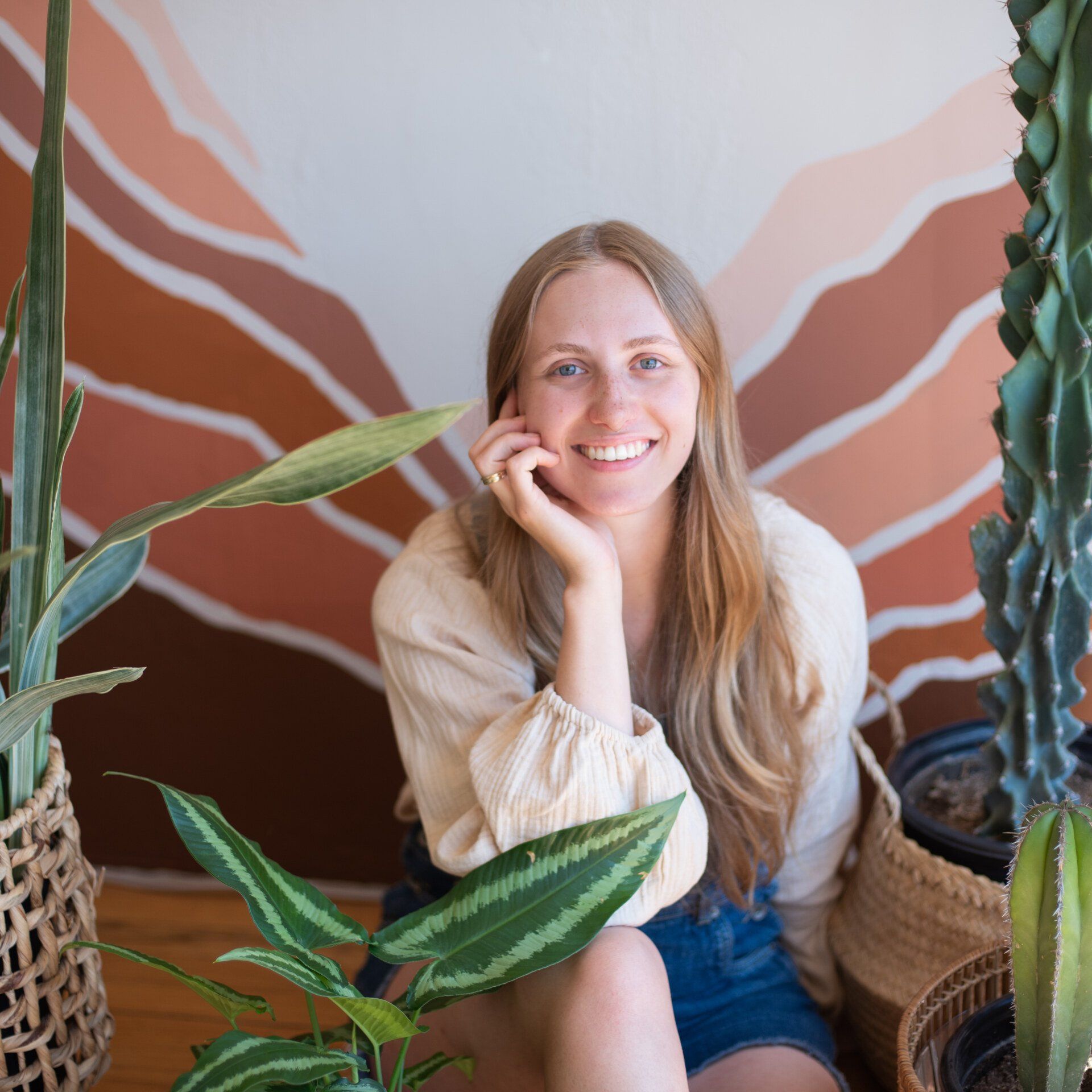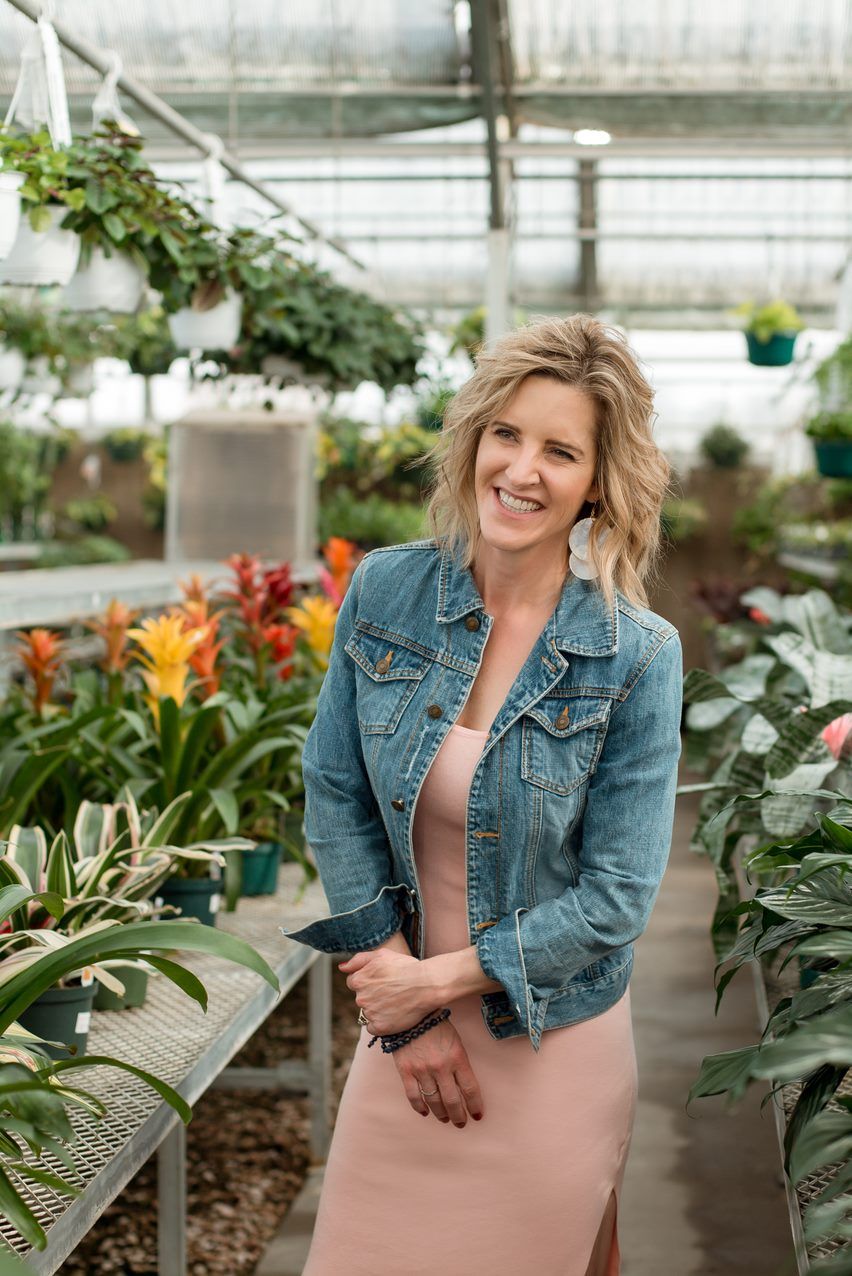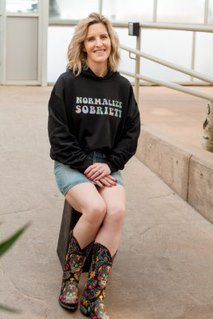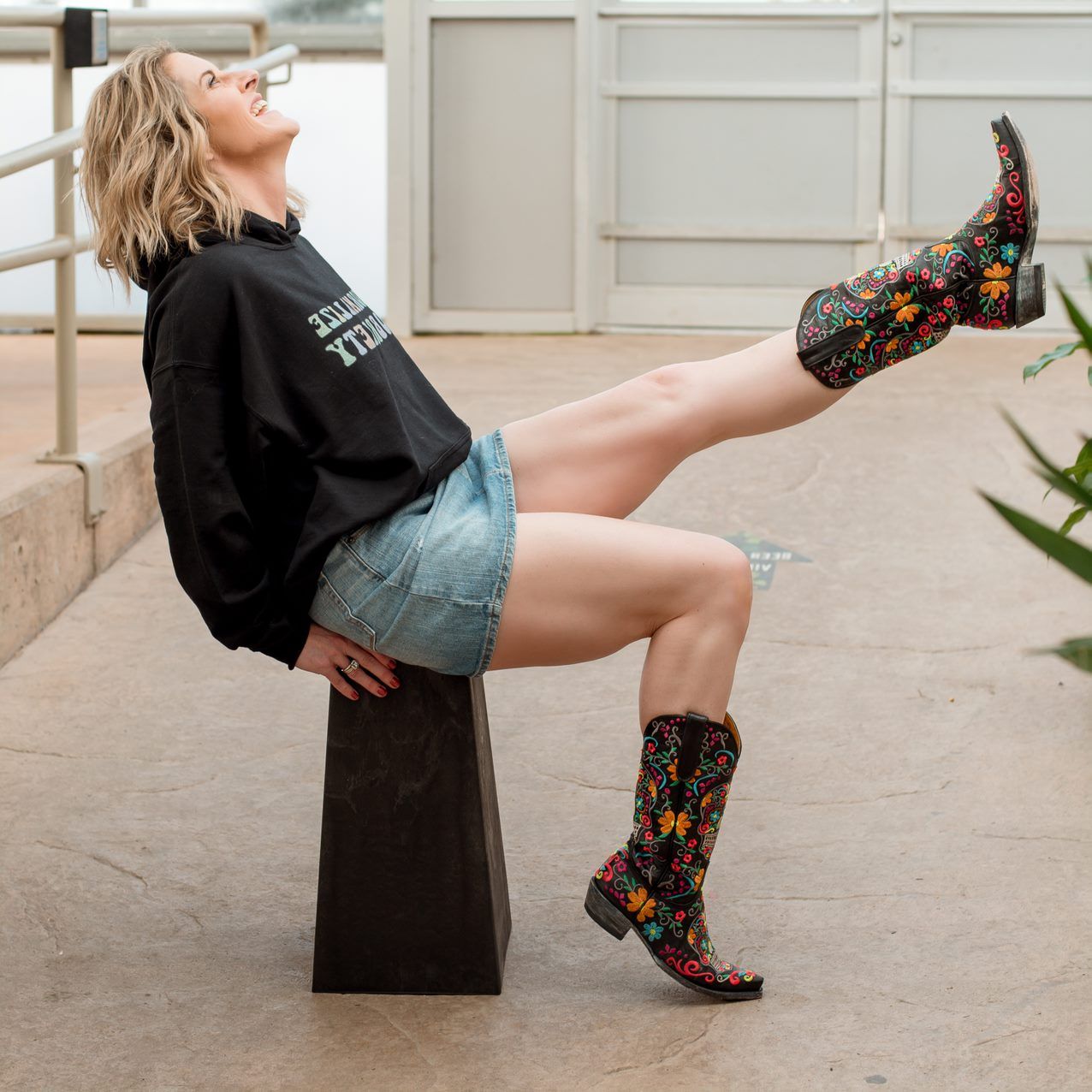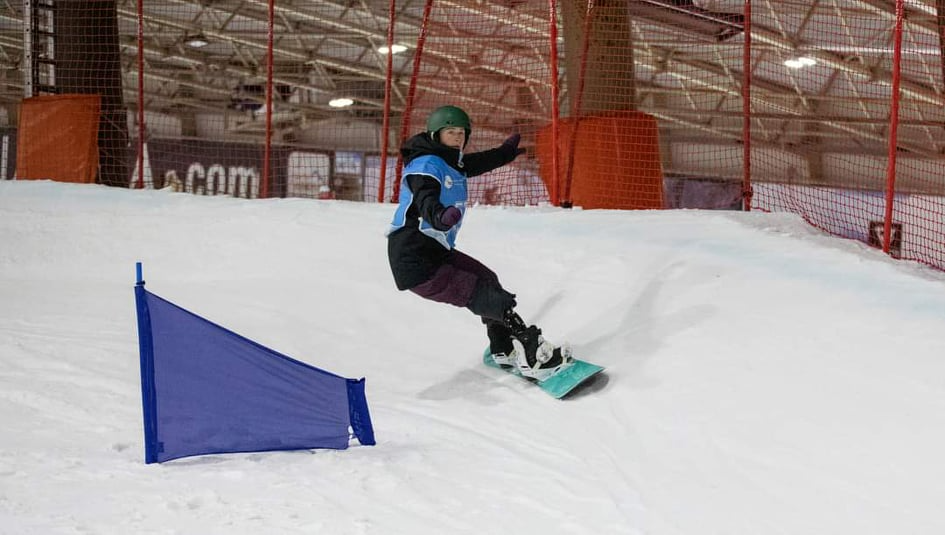UPROOTED Black Hills is a local plant shoppe that began as a passion project amongst friends, operating as a solely mobile business in May of 2021. The potential to expand the business’s available services and open a storefront enticed Justice Fuegen to seek ownership. Along with her husband Steele, they purchased the business this past February. Now sharing a suite with local boutique Aurora Grace, the ability to have a home base has increased the available space for plant storage and allowed them to serve a larger clientele.
“Having the storefront has allowed us to teach classes and provide workshops to hundreds of people,” Justice said. “It has created a safe space for people to try plant parenthood along with all the resources and support they need.”
Having recently undergone a complete renovation the last two weeks of July, UPROOTED’s space has now doubled in size to house a more expansive inventory, as well as create a more functional storage and care space. “We now offer all the items people will need to be successful in their plant parentage,” Justice said, “including pots, soils, soil mix-ins, tools, pest treatments, plant foods, sprays, plant supports, lights, humidifiers, fans, and so much more. We even have a sweet repotting station for people to use. You just pay a few dollars for soil and mix-ins, a pot if you need one, and we can show you how to make your plant as healthy as possible.”
In addition to being a high quality plant supplier for individual plant enthusiasts, UPROOTED also offers business-specific services. They offer plant styling, consulting with a business to bring plants into a space, and also plant care, creating the opportunity to house plants within the workspace without the stress of caring for them. UPROOTED will water, prune, and fertilize your plants so you don’t have to. This care option is also available short-term to individuals in terms of plant sitting. Taking a trip? Ask UPROOTED to look out for your plant babies while you’re away.
Their complete list of growing services can be found on their website, but rooted at the heart of each one is a passion for quality.
“What makes us different from other local greenhouses is because of our size and standard of ethics,” Justice said. “We physically inspect and clean every plant that comes through our doors before labeling it and putting it out on the floor to sell.”
Justice recognizes that having a business with live inventory is an acknowledgment that some spoilage is bound to happen. Plants that come into UPROOTED sick receive quarantine and treatment. Sometimes, the plant is able to be rehabbed. Other times, it is not. But if not, rest assured, you will not find it on the floor for purchase.
“It’s actually illegal to sell plants that are sick with any sort of pest or disease,” Justice said. “Yet so many greenhouses skirt around this rule. Spider mites are the most common one I’ve seen this happen with, and it drives me crazy because it’s obvious and fairly easy to treat.”
UPROOTED’s quality product matches their caliber of service.
“It’s a judgment free zone,” Justice said. “We’ve all killed at least a dozen or more plants, and we’d rather share what we’ve learned along the way than have people make the same mistakes.”
Alongside Justice, UPROOTED employs four additional employees, all of whom are female. For most of them, UPROOTED is a part-time job they simply enjoying doing for fun.
“I absolutely love it, and I’m really proud of how we operate,” Justice said. “We know real life happens. We have a nurse, a stay-at-home mom who’s going back to school, a photographer, and a full time college student.”
Having a foot in more than one place is a role Justice is very accustomed to.
Not only does Justice work in the store three days a week, but she also balances her in-person interaction with behind-the-scenes necessities. She helps other team members process plant shipments, in addition to completing taxes, bookkeeping, payroll, employee scheduling, event scheduling, and overseeing services for other businesses. As if that weren’t enough, she also does bookkeeping part time for a construction company and cleans and manages her and her husband’s Airbnb. Together, they are also expecting their first baby.
“We are really looking forward to how we can be a suc- cessful, family-centered business,” Justice said. “I tend to bite off more than I can chew, so I’m very grateful to have a husband who sees when I need help and takes what he can off my plate.”
She describes Steele as unconditionally kind, deeply caring, patient, and sacrificial of his time and energy (and sometimes his back) to help her further her goals. They met at a time when Justice didn’t plan on putting down any roots or even dating.
“After graduating high school in 2018, I was convinced I would take a gap year to participate in a missions-based study abroad program before starting college to pursue a law degree,” Justice said. “I did a Discipleship Train- ing School (DTS) through Youth With A Mission (YWAM) focused on anti-human trafficking education and out- reach.”
This entailed six months of hands-on ministry in Eastern Europe working with existing non-profits and ministries to educate the public on different types of human trafficking. Justice recalls the experience as a time of immense personal and spiritual growth. Afterward, she thought she would continue to fund raise and ultimately got a job working at Pure Bean Coffeehouse to help support that goal. It was during this time she met Steele and also gained a love for business she couldn’t have imagined.
“Right when I was hired, I was given the opportunity (as a 19 year old) to run a coffeehouse full time,” Justice said. “I was given so much responsibility in such a short amount of time that it grew me and showed me how to run a business. By the time I transitioned out, my job included managing two shops, twenty-five employees, and a lot of moving parts. Nick, if you’re reading this, thank you for making me a businesswoman.”
Justice’s outlook on the future includes continuing to grow UPROOTED, both in the short term, hoping to add a full-time position for plant care of other businesses alone within the next year, and in the long term, to encompass her other passions.
“Looking ahead 5-7 years, I’d like to start a parent business that envelopes UPROOTED to allow for more community development and resources,” Justice said. “It would be structured similar to a co-op that allows other businesses to all join together.”
Types of involvement Justice hopes to include center on fast fashion, human trafficking prevention through edu- cation, and medically accurate, guilt-free, unbiased sex education. In addition, she would like to explore personal and professional development resources such as basic home maintenance, meal planning and cooking, budgeting and finance classes, gardening, car maintenance, and job interview practice.
“I feel like young people often get a bad rap for not knowing enough about ‘basic life skills,’ but how can we give anyone flack for not knowing something they weren’t taught?” Justice said. “So many people I’ve met are hungry for the chance to better themselves and be self-sufficient. I’d love to help make the connection between resources and young adults.”
UPROOTED in itself is already a resource for plant life and community, and it is evident from Justice’s passionate vi- sion that the future of UPROOTED is just starting to bloom.
Read more about UPROOTED and their full list of services on their website uprootedblackhills.com, and be sure to check them out at their upcoming pop-ups. They also host monthly community plant swaps, so follow along on social media to stay up to date!

